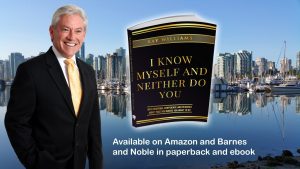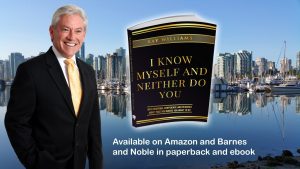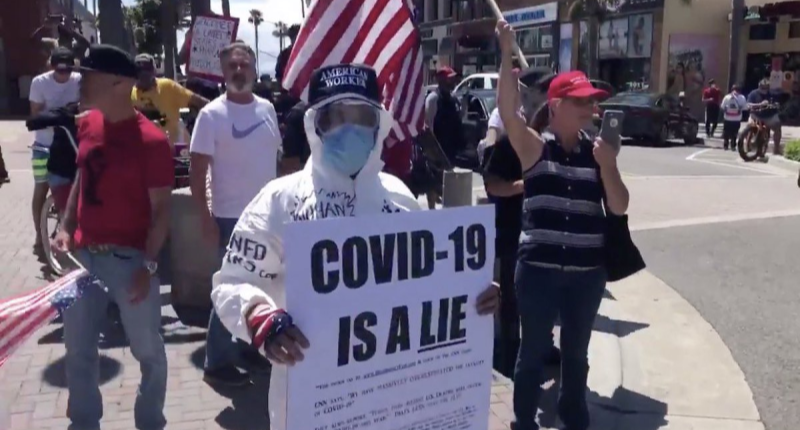By Ray Williams
May 12, 2020
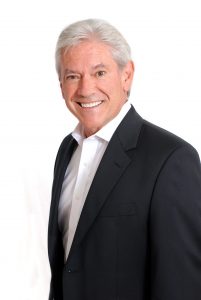
Recent attacks on the U.S. Federal government’s own virus pandemic scientists such as Dr. Anthony Fauci and Dr. Rick Bright by FOX News, conservative politicians and pundits, and even President Trump reflects an anti-science, anti-expert culture in America.
Suspicion of experts is “a long-lasting American tradition,” says Claude Fischer, a sociologist at the University of California, Berkeley. “And I think there’s also a long-lasting American tradition to ride that politically.”
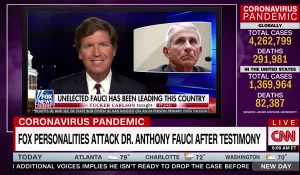
In the 1952 presidential race, Dwight Eisenhower accused his opponent Adlai Stevenson, the former governor of Illinois, of using “aristocratic explanations in Harvard words.” President Lyndon Johnson said “self-styled intellectuals … are more concerned with the trivia and the superficial than they are with the things that have really built America.” Spiro Agnew, Vice President during the Nixon administration, called the press “an effete corps of impudent snobs who characterize themselves as intellectuals.”
“But I think that the backlash against experts that we see today is different,” says Matt Motta, at the Annenberg Public Policy Center at the University of Pennsylvania, “what I think we see going on now, is an attack on experts as individuals, as people – demonizing those experts who disagree with our ideological viewpoints, and denigrating their professionalism,” Dr. Motta says.
Still, America’s general distrust of elites, many historians say, is nevertheless part of a tradition of independence and individualism that many believe has made the country “exceptional.” It proudly pronounces that “history is bunk” mindset, a spirit of self-reliance.
Political polarization has transformed a general distrust of experts into various kinds of conspiracy theories. Opponents of both climate change and GMOs often point to funding sources, whether from industry sources or the government, and question the integrity and professionalism of researchers, suggesting they provide the findings they’re essentially paid to report.
Mark Bauerlein, in his book, The Dumbest Generation, reveals how a whole generation of youth is being dumbed down by their aversion to reading anything of substance and their addiction to digital “crap” that is composed on social media.
Anti-intellectualism is hostility to and mistrust of intellect, intellectuals and intellectualism commonly expressed as deprecation of education and philosophy, and the dismissal of art, literature and science as impractical and even contemptible human pursuits. Anti-intellectuals present themselves and are perceived as champions of common folk—populists against political and academic elitism—and tend to see educated people as a status class and feel that intellectuals dominate political discourse and control higher education. Totalitarian governments manipulate and apply anti-intellectualism to repress political dissent.
Susan Jacoby argues that it is almost impossible to talk about the manner in which public ignorance contributes to grave national problems without being labeled an “elitist,” one of the most powerful pejoratives that can be applied to anyone aspiring to high office. Instead, she says, “our politicians repeatedly assure Americans that they are just ‘folks,’ a patronizing term that you will search for in vain in important presidential speeches before 1980.”
Jacoby argues it is “not lack of knowledge per se but arrogance about that lack of knowledge.” Jacoby calls this anti-rationalism — a syndrome that is “particularly dangerous to our public institutions and discourse. Not knowing a foreign language or the location of an important country is a manifestation of ignorance; denying that such knowledge matters is pure anti-rationalism. The toxic brew of anti-rationalism and ignorance hurts discussions of U.S. public policy on topics from health care to taxation.”
There has been a long tradition of anti-intellectualism in America, unlike most other Western countries. Richard Hofstadter, who won a Pulitzer Prize in 1964 for his book, Anti-Intellectualism In American Life,describes how the vast underlying foundations of anti-elite, anti-reason and anti-science has been infused into America’s political and social fabric.
Journalist Charles Pierce, author of Idiot America, adds another perspective: “The rise of idiot America today represents–for profit mainly, but also and more cynically, for political advantage in the pursuit of power–the breakdown of a consensus that the pursuit of knowledge is a good. It also represents the ascendancy of the notion that the people whom we should trust the least are the people who best know what they are talking about. In the new media age, everybody is an expert.”
Tom Nichols is professor at the U.S. Naval War College and author of The Death of Expertise: The Campaign Against Established Knowledge and Why It Matters, argues“In the far less grand homes of ordinary American families, knowledge of every kind is also under attack. Parents argue with their child’s doctor over the safety of vaccines. Famous athletes speculate that the world might actually be flat. College administrators ponder dropping algebra from the curriculum because students keep failing it. This is all immensely dangerous, not only to the well-being of individual citizens, but to the survival of the United States as a republic.”
Nicols goes on to say “A significant number of laypeople now believe, for no reason but self-affirmation, that they know better than experts in almost every field. They have come to this conclusion after being coddled in classrooms from kindergarten through college, continually assured by infotainment personalities in increasingly segmented media that popular views, no matter how nutty, are virtuous and right, and mesmerized by an internet that tells them exactly what they want to hear, no matter how ridiculous the question.”
This theme that anybody’s opinion is as good as anybody else’s opinion is, I think, very deep in American society.
The Influence of the Internet and Social Media
The internet has completely changed the way that individuals seek out and find information to solve even the simplest of problems. A generation ago, people relied on encyclopedias, people with experience, and experts to obtain information. The walking, talking specialized encyclopedias of the past – respected experts – were revered in part because they knew large amounts of obscure information and carried that knowledge in their minds all the time.
Today, with smartphones in our pockets and Google in our browsers, anyone can have the answer to any question with them at all times. This makes many feel that they are experts themselves, or that experts have no special talent or knowledge, and thus deserve less trust. Wikipedia means that anyone can be an expert for a moment.
Yet smartphones make us jacks of all trades, masters of none. With the wide variety of questionable sources on the internet, you cannot truly know if the information found on the web is credible unless it comes from, unsurprisingly, an expert source. But experts also have such a depth of knowledge about a subject that they bring exceptional insight; simply having access to all answers means that you understand the best solution to the question.
Just as a doctor knows to look for related symptoms when preparing to diagnosis an illness or a car mechanic remembers to check your windshield wipers because he knows you never remember to replace them, experts have growing and synthesizing knowledge that allows them special insight. This kind of insight takes time to develop; most internet users are looking for a specific answer right now. The ability to reach for an answer at our fingertips has made us skip nuance for ease of access. Infotainment that is easy to digest and provides the answer you want to hear is easier than digesting the nuance of experts.
However, by choosing to ignore these institutions and to instead focus on other institutions, such as mass media, social media, and internet resources, individuals can pad their mistrust of expertise in an effect called confirmation bias. Confirmation bias is the practice of interpreting new data based on your currently held beliefs by seeking out data that supports those beliefs. Individuals experience a sense of safety and reassurance learning that their beliefs are correct and held by others; confirmation bias allows us to extend that good feeling by seeking out supporting views.
One of the most powerful trends of the last decade that has degraded the trust of experts is the reliance of the general public on social media for news and entertainment, and the rise of enjoyable news programming. Infotainment – material broadcast through media that is meant to simultaneously entertain and inform – is increasingly popular in many Western societies, but its ubiquity does not improve our trust of experts. Unless infotainment is produced by experts, there is no guarantee of its factual accuracy nor of its balance between fact and opinion.
With so many options for news, from television to print to online sources, the consumer can choose which outlet and source to get his news from, leading to unprecedented competition on social media between experts and frauds alike. Consumers, looking for an enjoyable and easy-to-understand news source, look for the most entertaining and bias-affirming option available. The result, combined with the 24-hour news cycle, is the widening spectrum of infotainment, with consumers no longer dependent on reliable and reputable reporting for news.
Why listen to the expert when an exciting 30-second clip on YouTube and a blog post can somewhat explain the same phenomenon?
Tom Nichols argues that combining informative news and entertaining social media is dangerous and that the “fusing of entertainment, news, punditry, and citizen participation is a chaotic mess that does not inform people so much as it creates the illusion of being informed.” Because we can choose our infotainment, we self-select which news we consume and which experts we choose to trust or distrust.
First, the “democratization of information” that is the direct result of the internet — perhaps the most liberating and revolutionary invention of mankind — has a darker side. Anybody with access to Google and five minutes to kill believes that he can become an expert in anything. Consequently, people believe that their opinions are just as good as anybody else’s, including those of experts.
In Anti-intellectualism in American Media, Dane Clausen identified the contemporary anti-intellectualist bent of manufactured consent that is inherent to commoditized information: “The effects of mass media on attitudes toward intellect are certainly multiple and ambiguous. On the one hand, mass communications greatly expand the sheer volume of information available for public consumption. On the other hand, much of this information comes pre-interpreted for easy digestion and laden with hidden assumption, saving consumers the work of having to interpret it for themselves. Commoditized information naturally tends to reflect the assumptions and interests of those who produce it, and its producers are not driven entirely by a passion to promote critical reflection.”
The editorial perspective of the corporate mass-media misrepresented intellectualism as a profession that is separate and apart from the jobs and occupations of regular folk. In presenting academically successful students as social failures, an undesirable social status for the average young man and young woman, corporate media established to the U.S. mainstream their opinion that the intellectualism of book-learning is a form of mental deviancy, thus, most people would shun intellectuals as friends, lest they risk social ridicule and ostracism. Hence, the popular acceptance of anti-intellectualism lead to populist rejection of the intelligentsia for resolving the problems of society.
Moreover, in the book Inventing the Egghead: The Battle over Brainpower in American Culture, Aaron Lecklider indicated that the contemporary ideological dismissal of the intelligentsia derived from the corporate media’s reactionary misrepresentations of intellectual men and women as lacking the common-sense of regular folk.
The mostly scientifically illiterate public seems to lack the necessary skills to distinguish between contending claims to knowledge or differentiate between fact and opinion. We now live in a scary and confusing “post-truth” era of disinformation, “fake news,” “counterknowledge,” “weaponized lies,” conspiracy theories, magical thinking, and irrationalism.
Bogus and irrational ideas are thriving and seem to be widely received and accepted. However, tolerating irrationalism and scientific illiteracy poses many dangers. It is dangerous to individual well-being. Numerous people have died because of their trust in sham alternative medical cures, and many others have lost their life savings by believing in psychics and miracle workers. More than that, acquiescence to irrationalism threatens the well-being of our society. As philosophers Theodor Schick and Lewis Vaughn have put it: “A democratic society depends on the ability of its members to make rational choices. But rational choices must be based on rational beliefs. If we can’t tell the difference between reasonable and unreasonable claims, we become susceptible to the claims of charlatans, scoundrels, and mountebanks.”
The effects of all this on today’s media and politics are startling. Disreputable journalism has become widespread, and few in the profession consider speaking truth to power or even objectivity in reporting as part of their responsibilities. In this intellectual climate, pretentious and utterly unqualified politicians are flagrantly flaunting opinions on issues ranging from vaccines, human reproduction, stem cell research, the origins of the Earth, and human evolution, to the state of the biosphere, that are contrary to overwhelming historical and scientific evidence.
Large numbers of people are willing to listen to and believe conspiracies, lies and false information rather than rely on experts who have scientific evidence to back up their claims. For example, “Bill Gates created the corona virus;” “the virus is no more dangerous than the seasonal flu;” “Coronavirus is a ‘fake news’ hoax manufactured by the news or the Democratic Party;” “You can use hand dryers, vitamin C, bleach or lemon juice to kill the virus;” “the government will shut down all grocery stores so that no one can buy food.” All of these claims are examples of conspiracies associated with corona virus that have been perpetrated by social media and in some cases the mainstream media and political leaders.
Social media are a dangerous venue for information-gathering, especially in a pandemic. It’s not that these venues can’t be used to provide useful information, particularly if the people in one’s social network are transmitting news from credible sources. But in an era of post-truth, where almost half the voting-age population doesn’t vote, and less than half closely follow the news, reliance on social media as a source of information about the world is fraught with perils. And in a political culture as profoundly anti-intellectual as that of the U.S., it is easy for misinformation to masquerade as “common sense.”
Misinformation filters down to millions of Americans who don’t typically follow the news, but who are exposed to bad information through similarly ill-informed family and friends posting memes and other noise on social media. And many don’t even consider themselves Trump supporters have also fallen victim to right-wing misinformation, because of their reliance on social media.
In his article in The Guardian, Michiko Kakutani argues “from post-modernism to filter bubbles, ‘truth decay’ has been spreading for decades. How can we stop alternative facts from bringing down democracy?” he asks. He says “Two of the most monstrous regimes in human history came to power in the 20th century, and both were predicated on the violation and despoiling of truth, on the knowledge that cynicism and weariness and fear can make people susceptible to the lies and false promises of leaders bent on unconditional power.”
Kakutani contends it’s not just fake news either: it’s also fake science (manufactured by climate change deniers and anti-vaxxers, who oppose vaccination), fake history (promoted by Holocaust revisionists and white supremacists), fake Americans on Facebook (created by Russian trolls), and fake followers and “likes” on social media (generated by bots). Donald Trump, the 45th president of the US, lies so prolifically and with such velocity that the Washington Postcalculated he’d made thousands of false or misleading claims during his three years in office. He routinely assails the press, the justice system, the intelligence agencies, the electoral system and the civil servants who make the US government tick.
Daniel Patrick Moynihan’s well-known observation that “Everyone is entitled to his own opinion, but not to his own facts” is more timely than ever: Polarization has grown so extreme that voters have a hard time even agreeing on the same facts. This has been exponentially accelerated by social media, which connects users with like-minded members and supplies them with customized news feeds that reinforce their preconceptions, allowing them to live in eve rnarrower silos.
According to a Pew Research study ,there is a wide divide along party lines in terms of how they view the experts and scientific evidence. See the figures below
Higher levels of familiarity with the work of scientists are associated with more positive and more trusting views of scientists regarding their competence, credibility and commitment to the public, the survey shows.
A partisan divide persists. More Democrats (43%) than Republicans (27%) have “a great deal” of confidence in scientists – a difference of 16 percentage points. The gap between the two parties on this issue (including independents who identify with each party, respectively) was 11 percentage points in 2016 and has remained at least that large since.
There are also clear political divisions over the role of scientific experts in policy matters, with Democrats more likely to want experts involved and to trust their judgment. Most Democrats (73%) believe scientists should take an active role in scientific policy debates. By contrast, a majority of Republicans (56%) say scientists should focus on establishing sound scientific facts and stay out of such policy debates. The two political groups also differ over whether scientific experts are generally better at making decisions about scientific policy issues than other people: 54% of Democrats say they are, while 66% of Republicans think scientists’ decisions are no different from or worse than other people’s. Finally, Democrats and Republicans have different degrees of faith in scientists’ ability to be unbiased; 62% of Democrats say scientists’ judgments are based solely on facts, while 55% of Republicans say scientists’ judgments are just as likely to be biased as other people’s.
The survey of 4,464 adults was conducted in January 2019 using Pew Research Center’s American Trends Panel, a nationally representative panel of randomly selected U.S. adults.
Among other important findings: Despite generally positive views about scientists across all six specialties, most Americans are skeptical about key areas of scientific integrity. No more than two-in-ten Americans believe scientists across these groups are transparent about potential conflicts of interest with industry all or most of the time. This trend has lethal consequences. Every single year, public health experts beg and plead for people to receive influenza vaccinations, but most Americans ignore them. Despite the fact that the seasonal flu vaccine is imperfect (due to the unpredictable nature of the virus), thousands of Americans have died unnecessarily because they choose to reject their doctor’s advice.
Miami University anthropology professor H. Sidky has argued that 21st-century anti-scientific and pseudoscientific approaches to knowledge, particularly in the United States, are rooted in a postmodernist “decades-long academic assault on science:” “Many of those indoctrinated in postmodern anti-science went on to become conservative political and religious leaders, policymakers, journalists, journal editors, judges, lawyers, and members of city councils and school boards. Sadly, they forgot the lofty ideals of their teachers, except that science is bogus.”
In the rural U.S., anti-intellectualism is an essential feature of the religious culture of Christian fundamentalism. Some Protestant churches and the Roman Catholic Church have directly published their collective support for political action to counter climate change, whereas Southern Baptists and Evangelicals have denounced belief in both evolution and climate change as a sin, and have dismissed scientists as intellectuals attempting to create “Neo-nature paganism”. People of fundamentalist religious belief tend to report not seeing evidence of global warming.
As Albert Einstein put it, science is one of the most precious things we have. It is valuable not because it guarantees absolute truths free of bias, error, and deception but because it is a unique self-correcting method for reducing bias, mistakes, and fraud to advance our understanding of the social and natural worlds and the universe. Among all the ways of knowing ever devised, only science strives to combat our confirmation biases by demanding that practitioners question their premises and to systematically expose their conclusions to the inspection of unsympathetic nonbelievers.
The hallmark of science is the question “What is the evidence?” The hallmark of the alternative perspectives touted by our “home-grown ayatollahs” and obscurantist gurus is “I wish to believe”. Science remains our only path toward “thinking straight about the world,” which is something urgently needed at this critical historical juncture as irrationalism and fanaticism are “bubbling up around us” .
What Americans rarely acknowledge is that many of their social problems are rooted in the rejection of critical thinking or, conversely, the glorification of the emotional and irrational. What else could explain the hyper-patriotism that has many accepting an outlandish notion that America is far superior to the rest of the world? Love of one’s country is fine, but many Americans seem to honestly believe that their country both invented and perfected the idea of freedom, that the quality of life far surpasses everywhere else in the world.
Climate deniers, anti-vaxxers and other groups who don’t have science on their side bandy about phrases that wouldn’t be out of place in a college class on deconstruction – phrases such as “many sides,” “different perspectives”, “uncertainties”, “multiple ways of knowing.”As Naomi Oreskes and Erik M Conway demonstrated in their 2010 book Merchants of Doubt, right wing think tanks, the fossil fuel industry, and other corporate interests that are intent on discrediting science have employed a strategy first used by the tobacco industry to try to confuse the public about the dangers of smoking. “Doubt is our product,” read an infamous memo written by a tobacco industry executive in 1969, “since it is the best means of competing with the ‘body of fact’ that exists in the minds of the general public.”
The strategy, essentially, was this: Dig up a handful of so-called professionals to refute established science or argue that more research is needed; turn these false arguments into talking points and repeat them over and over; and assail the reputations of the genuine scientists on the other side. If this sounds familiar, that’s because it’s a tactic that’s been used by Trump and his Republican allies to defend policies (on matters ranging from gun control to building a border wall) that run counter to both expert evaluation and national polls.
What Oreskes and Conway call the “tobacco strategy” was helped, they argued, by elements in the mainstream media that tended “to give minority views more credence than they deserve”. This false equivalence was the result of journalists confusing balance with truth telling, wilful neutrality with accuracy; caving in to pressure from right wing interest groups to present “both sides”; and the format of television news shows that feature debates between opposing viewpoints – even when one side represents an overwhelming consensus and the other is an almost complete outlier in the scientific community.
Many misogynist and white supremacist memes, in addition to a lot of fake news, originate or gain initial momentum on sites such as 4chan and Reddit – before accumulating enough buzz to make the leap to Facebook and Twitter, where they can attract more mainstream attention. Renee DiResta, who studies conspiracy theories on the web, argues that Reddit can be a useful testing ground for bad actors – including foreign governments such as Russia’s – to try out memes or fake stories to see how much traction they get. DiRest a warned in the spring of 2016 that the algorithms of social networks – which give people news that is popular and trending, rather than accurate or important – are helping to promote conspiracy theories.
There is an asymmetry of passion on social media: most people won’t devote hours reinforcing the obvious. Extremists are committed to “wake up the sheeple.” This sort of fringe content can both affect how people think and seep into public policy debates on matters such as vaccines, zoning laws and water fluoridation. Part of the problem is an “asymmetry of passion” on social media: while most people won’t devote hours to writing posts that reinforce the obvious, DiResta says, “passionate truthers and extremists produce copious amounts of content in their commitment to ‘wake up the sheeple’”.
Recommendation engines, she adds, help connect conspiracy theorists with one another to the point that “we are long past merely partisan filter bubbles and well into the realm of siloed communities that experience their own reality and operate with their own facts”. At this point, she concludes, “the internet doesn’t just reflect reality any more; it shapes it”.
There are no easy remedies, but it’s essential that citizens defy the cynicism and resignation that autocrats and power-hungry politicians depend on to subvert resistance. Without commonly agreed-on facts – not Republican facts and Democratic facts; not the alternative facts of today’s silo-world – there can be no rational debate over policies, no substantive means of evaluating candidates for political office, and no way to hold elected officials accountable to the people.
Without truth, democracy is hobbled.
Copyright: Neither this article or a portion thereof may be reproduced in any print or media format without the express permission of the author.
Read my latest book: I Know Myself and Neither Do You: Why Charisma, Confidence and Pedigree Won’t Take You Where You Want To Go,available in paperback and ebook on Amazon and Barnes & Noble in the U.S., Canada, Europe and Australia and Asia.
